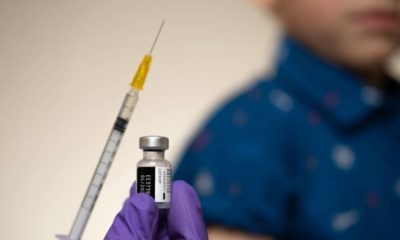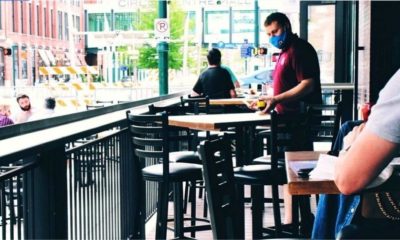Breaking News
Pandemic Raising Risk of Alcoholism

In addition to fear, the pandemic has brought us an abundance of free time, an empty social calendar, and a feeling of isolation from the world. Social distancing and staying home may stop the spread of the virus. However, it could lead to an epidemic of depression, alcoholism, and deaths of despair.
Hiding at Home
It’s Monday. Millions of Americans would normally be at work, engaging with coworkers and solving problems. Afterward, kids may need to be picked up or shuttled to after-school activities. After-work plans could include hitting the gym, playing some sports, or getting ready for a date.
Today, however, we’re all sitting at home. For about two months, this has been the American reality, from Monday till Sunday and all over again. Some are working from home, and many are now unemployed. However, virtually all Americans have significantly less on their social calendar than they did a few months ago. This leads to a great deal of free time, and a daily struggle to fill the day with structure and purpose.
The need to stay inside, high rates of unemployment, and a less structured day combine to create a perfect storm for mental health issues, including alcoholism and depression. Studies are coming out to conclude just that. Coupled with the paranoia and widespread fear of a news cycle dedicated to the pandemic, the US may be in for a new public (mental) health crisis long after this one has passed.
How We Medicate in a Crisis
Despite the stereotype that employees slack off when they work from home, American workers have been more productive. But they’re also working much longer hours and 45% say they’re burned out. https://t.co/YNLtdplo2L
— Rubina Madan Fillion (@rubinafillion) April 25, 2020
Past collective traumas demonstrate that we turn to self-medication, such as heavy drinking or smoking, in times of high stress. Before the data came out to prove it, experts were already predicting a spike in the use of harmful substances to deal with the emotional effect of the pandemic.
As Business Insider reports, a 2008 study by the CDC found that Louisiana hospitalization rates for alcoholism or alcohol abuse rose 35% after Hurricane Katrina. A similar trend was seen in New York following 9/11. What concerns experts is that this pandemic is affecting the whole country, which means the trend could be seen nationwide.
High Risk Time for Depression, Addiction, Deaths Of Despair
In a poll recently conducted by the Kaiser Family Foundation, almost of half of Americans said that the COVID-19 crisis is harming their mental health. The dramatic rise in liquor sales since the shelter-in-place orders began speaks itself.
Several researchers, including The Well Being Trust project that the pandemic will cause an additional 75,000 deaths of despair (such as suicide and substance abuse casualties).
“Deaths of despair are tied to multiple factors, like unemployment, fear and dread, and isolation. Prior to the COVID-19 pandemic, there were already an unprecedented number of deaths of despair. We wanted to estimate how this pandemic would change that number moving forward,” said Benjamin Miller, who co-authored the study.
The study mentioned that while negative outcomes like addiction, depression, and suicide will likely rise during the pandemic. Also, the intensity of this increase will depend on how long the effects of the lock-down are felt. A quick recovery will have less of an effect on society than a longer withdrawal from normal life.
If you or a loved one is suffering from substance abuse or mental health challenges, you can call 1-800-662-HELP (4357) for support. The Substance Abuse and Mental Health Services Administration (SAMHSA) is available 24/7 to assist Americans. More information here.
Up Next:












